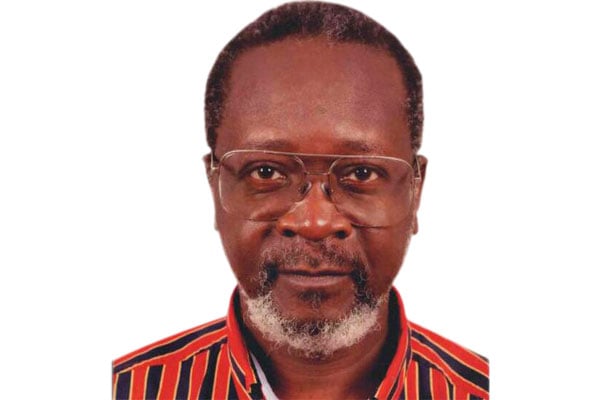Prime
DP isn’t a purely confessional political party as Museveni says

Author: Yoga Adhola. PHOTO/FILE
What you need to know:
- As independence was going to be a major turning point in our history, the Catholics in Buganda seized the opportunity to organise themselves with a view to influence changes.
In his recent letter to Democratic Party (DP) president Norbert Mao, also minister of Justice and Constitutional Affairs, on his homecoming fete, President Museveni wrote: “However, lo and behold, in 1954, some Ugandans started a religious leaning party, the DP, mainly supported by the Catholics elite....”
In this article, we shall seek to answer the question once posed by Prof Michael Twaddle in an article titled, ‘Was the Democratic Party of Uganda a purely confessional party?’ The answer is no and no.
To understand the relations between the Catholic Church and the Democratic Party, we need to go back to the last quarter of the 19th Century, specifically to the point of the arrival of Christianity in Uganda.
Kathleen Lockard tells us that in the last quarter of the 19th Century, the Kingdom of Buganda did undergo great changes. It was the period when the institution of the kabaka was asserting its authority and supplanting the clan heads. It was also the period when the situation required a means of social identification cutting across clans.
As these changes were going on, foreign religions in the form of Christianity arrived, in two forms: the Church Missionary Society or the Protestants (popularly called the Ingleza) in 1877 and the Catholics called the Fransa in 1879.
The arrival of these foreign religions coincided with these changes then taking place and became an integral aspect of the changes.
Dr Kathleen Locard put it succinctly thus: “The introduction of both Islam and Christianity into the area which is now Uganda coincided with, and in fact was an integral part of, a series of political upheavals which changed the course of history, first in the kingdom of Buganda (in the southern part of what became the Uganda Protectorate), and subsequently in the neighbouring regions to the north, east and west.”
“Islam reached Uganda first, brought by Arab traders who arrived in Buganda in 1844; it attracted the interest of Kabaka (king) Suna and later of his son Muteesa, and a number of Baganda at Muteesa’s court were converted to Islam. Christian and Muslim proselytisers arrived in Uganda during a historical era which witnessed two major political changes: first, the culmination of a process of centralisation of power in the hands of the kabaka, and secondly, the imposition of British colonial rule”. (Lockard)
In due course, the changes that were taking place in the kingdom of Buganda took the form of wars. As the three religions had become also forms of identification, the wars assumed a religious colouration.
This is what President Museveni attempts to demean when he writes: “The last of these wars was fought in February 1892. It pitted the Catholics led by Stanislaus Mungwanya and Kabaka Mwanga on one side and the Protestants led by Apolo Kagwa and assisted by Frederick Lugard on the other.
The Protestants won and proceeded to form the administration at Mengo. From that time until the eve of independence, Catholics as an identity were treated like second class subjects of the kabaka. They could not be appointed to certain offices in the kingdom and were generally looked down upon.
As independence was going to be a major turning point in our history, the Catholics in Buganda seized the opportunity to organise themselves with a view to influence the changes so they could overcome their long-time discrimination.
This is what President Museveni demeans by the statement: “However, lo and behold, in 1954, some Ugandans started a religious leaning party, the DP, mainly supported by the Catholics elite....”
Yoga Adhola is a leading ideologue of UPC




